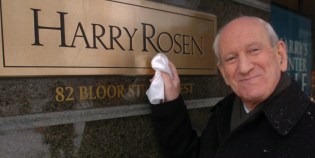Attention marketers: When it comes to millennials, stereotype at your own risk.
According to results from PR firm Ketchum’s recent “Language of Men” study, not all millennials are created equal. A notable subset of millennial males, 18-25 is emerging, and expressing beliefs and values more typically associated with older generations. Ketchum has dubbed this group the “new traditionalists.”
The study, designed to assess how men talk to each other and whether marketers need to re-assess how they communicate to millennials, was conducted by research firm maslansky + partners. The firm polled 900 U.S. males 18 -49 on everything from relationships, sex, health, appearance and careers.

New traditionalists contrast with older millennials, defined by Ketchum as men 26- 35, who appear less conventional in their views and open in their communications. For example, New Traditionalists are more likely to believe men are still expected to be the provider and protector (23% versus 15% of older millennials) and 40% said it matters that men are the breadwinners in a marriage.
“We found that [new traditionalists] had more in common with their grandfathers than they did with their fathers or older brothers,” said Bill Reihl, managing director of global brand marketing at Ketchum. “They felt there was still a lot of pressure on them to be provider and protector in their household, or the breadwinner in a relationship. Not to say they want to embrace the values of say, the fifties- they’re doing it in a modern way. They still have as many female friends as they have male friends, they’re more open to talking about their feelings- all the kind of stuff we’ve found most men have evolved to.”
Reihl said the timing for the study coincides with the fact that men are rising in the consumer marketplace, and starting to make more buying decisions. Up to now, he said, marketers have been focused mainly on women, in particular the coveted “shopper mom” demographic.
The study also revealed that younger men tend to think the “strong, silent” stereotype still applies to them (28% versus 24%), but millennials across the board (65%) are more likely to talk to their friends about relationships than those 36-49.
Reihl, who has worked at Weber Shandwick and Ogilvy PR in the past, said marketers targeting this fractured demographic, need to thoroughly understand their customer, pay attention to trends, and understand that male millennials are a diverse bunch.
“None of this an overnight shift,” he said. “It’s not like tomorrow we have to start treating everybody like they’re mister sensitive. We have to pay attention to the nuances that are happening in society, because that’s what going to be important. I think marketers are doing a better job of it, and they just need to continue to be diligent in learning more and more about their consumers and knowing who they’re marketing too.”










